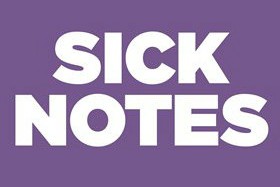The press release was disturbing. ‘The number of GPs is falling in real terms, as the profession faces a crisis in morale’, with an ‘ongoing negative media and a perception that government policies are targeting general practice’.
But this is not the UK. It is a description of what is happening thousands of miles away – in the supposed GP haven of Australia.
The ANZ-Melbourne Institute Health Sector Report is the first major health check of general practice in Australia and its results make eerily familiar reading.
There is a ‘likely increase in corporatisation of general practice, as smaller, doctor-run clinics are bought up by corporate entities’ and ‘falls in job satisfaction can reduce the attractiveness of general practice as a career for junior doctors and compound difficulties in recruitment’. Ring any bells?
As lead author Professor Anthony Scott says: ‘If we don’t have enough GPs, patients will end up in hospital more than they should. If patients can’t get in to see their GP they end up in the emergency department, where they’ll be seen by specialists. Specialists tend to do more procedures, which means more expense for the public purse. Potentially, patients may also end up receiving unnecessary treatments.’
Sick Notes has definitely heard this somewhere before.
–
What a boring election this has been. Sick Notes hopes that by the time this has been published Theresa May has punched a heckler (à la John Prescott) and Jeremy Corbyn has been caught putting red berets on baby kittens, but to be honest we will not be holding our breath.
There is one policy suggestion that caught Sick Notes’ attention. Devon LMC medical secretary, GPC negotiator and all-round good egg Mark Sanford-Wood has put the House of Lords in its place after peers suggested the Government explore a salaried GP service.
With remarkable restraint, Dr Sandford-Wood said this it was ‘a prognosis that I disagree with’ and proceeded to spell out that a salaried option would require 15,000 new GPs to be recruited.
He added: ‘While our progress so far on finding only the 5,000 GPs promised by 2020 in the 2015 Conservative manifesto is that numbers have actually fallen.
‘The salaried option is dead in the water unless the plan is to abolish general practice for a third of the population. For illustration that would be roughly everyone north of Derby.’
Now that is a manifesto promise that could liven up this election.
–
Margaret Thatcher’s former health minister Edwina Currie (she of the Salmonella kerfuffle) found her previously unassailable reputation took a bit of a pummelling when she tried to address the obesity and poverty crises in a single tweet.
She typed (pretty indignantly, one imagines): ‘How can “three million UK children be going hungry in the holidays” when there’s a national epidemic of child obesity? Eh?’
Now this is such blatant nonsense that Sick Notes hardly knew where to begin. Luckily, other Twitter users were quicker off the mark .
‘How can I have long hair when there are barbers?’ asked one. ‘How can I be thirsty when there are swimming pools?’ queried another. But perhaps our favourite was: ‘How can you be walking around when millions would like to pull your legs off and batter you with them?’
–
You have to laugh in the middle of a crisis, and even more so if you’re in the NHS. Shortly after the recent hack on the health services’ IT systems, one GP contacted us to say that after the practice had been advised to shut down all its computers, NHS England advised in a senior-level teleconference that it had ‘emailed further instructions to GP practices’.
‘Priceless!’ said the GP and Sick Notes would tend to agree.
–
PR fail: ‘Older people need to pump iron – warns Britain’s oldest personal trainer’ Yeah, that will work.
–
It’s not all bad news…
It doesn’t take much to make Sick Notes happy. A recent meta-analysis of 29 prospective cohort studies in the European Journal of Epidemiology hit the headlines after finding a ‘neutral association’ between dairy foods, milk and yogurt and the risk of all-cause mortality, CHD and CVD. In addition, a possible role of fermented dairy was found in CVD prevention, but the result was driven by a single study. This pleasing result is a victory for real-food enthusiasts – and by ‘real food’ we mean a slice of Cheshire cheese and a spoonful of Branston pickle (directly from the jar).
Pulse October survey
Take our July 2025 survey to potentially win £1.000 worth of tokens













